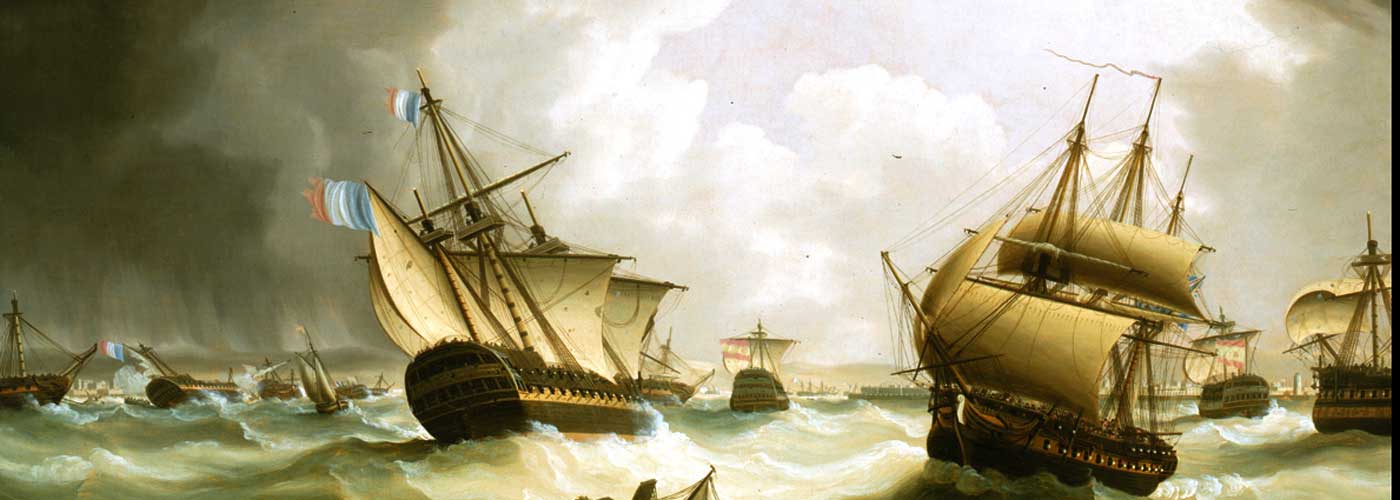
Trafalgar
Trafalgar
Two hundred years ago, Napoleon Bonaparte dominated Europe and threatened Britain with invasion. Against him stood the Royal Navy and the already legendary Admiral Horatio Nelson.
On 21 October 1805, a massive naval battle off the coast of Spain decided mastery of the seas. Then, over the following days and nights, the battleships and their exhausted crews endured a gale of awesome fury. As Captain Charles Tyler wrote to his wife Margaret, ‘the wind blew a perfect storm’.
The authors of the bestselling FINEST HOUR tell this story not only through the diaries, letters and memoirs of the men who wrestled with the enemy and the elements, but also through the eyes of their wives and children. Whether you are already familiar with this period of history or are coming to it for the first time, TRAFALGAR is a book that will enthral as it illuminates an event whose repercussions still echo today.
Two hundred years ago, Napoleon Bonaparte dominated Europe and threatened Britain with invasion. Against him stood the Royal Navy and the already legendary Admiral Horatio Nelson.
On 21 October 1805, a massive naval battle off the coast of Spain decided mastery of the seas. Then, over the following days and nights, the battleships and their exhausted crews endured a gale of awesome fury. As Captain Charles Tyler wrote to his wife Margaret, ‘the wind blew a perfect storm’.
The authors of the bestselling FINEST HOUR tell this story not only through the diaries, letters and memoirs of the men who wrestled with the enemy and the elements, but also through the eyes of their wives and children. These dramatic personal accounts are supported by extensive original research from logs, muster books and personal files discovered in France, Spain and Britain.
Glimpses of intriguing individuals enrich the narrative: Jeanne Caunant, wife of a Flemish ‘maintopman’; Louis Infernet, a hard-drinking sailor who rose to captain thanks to the French Revolution; James Martin, a seaman from Colchester who wrote about the battle; Dioniso Galiano, Spanish officer and explorer of the Ne World, are just a few. The demands of life at sea – and what this mix of people had suffered and achieved in the turbulent years that led up to the battle – make compelling reading.
Whether you are already familiar with this period of history or are coming to it for the first time, TRAFALGAR is a book that will enthral as it illuminates an event whose repercussions still echo today.
If you want just one book that will show how this flood of new material can transform a story you thought you knew, while at the same time keeping you gripped like a page-turner novel, buy TRAFALGAR by Tim Clayton and Phil Craig . . . this is, above all, the story of the ordinary folk of Trafalgar.
Colin White, Observer
Excellent...comprehensively researched, vividly written and judiciously argued. Wonderfully detailed pen portraits...Much new material from French and Spanish sources gives a rounded picture...compelling. Clayton and Craig have written about conflict before and it shows.
Saul David, Daily Telegraph
One of the book's greatest strengths is the attention paid to the
Glasgow Herald
Clayton and Craig...have found, among a great trove of participants' vivid letters and diaries, support for a revisionist approach to the Trafalgar legend
The Sunday Times
This searing, visceral giant of a book will surely be regarded as a classic of naval literature
Peter Hore, Warships International Fleet Review
The most fluent account of Trafalgar for a generation
Ships Telegraph
Vivid and compelling...an account of significant importance.
Naval Review
A magnificent account of the battle itself, including a detailed analysis of the storm that might well have wiped out the British fleet after victory had been won, had it not been for superb seamanship.
Guardian
My book of the year is TRAFALGAR ... a gripping account of the events of l805. The characters from both the British and Combined fleets are drawn with such understanding and sympathy that the full horror of the battle became all the more vivid as many of those I'd come to admire were sliced in half by cannon balls or disembowelled by chain-shot and splinters. the story that followed was as monstruos as the fighting that preceded it. The tactics and movements of sea battles are notoriously difficult to explain, but the authors draw the geography of the action with expert clarity.
Harry Enfield, Mail on Sunday
Date
10th January 2015
Category
History








